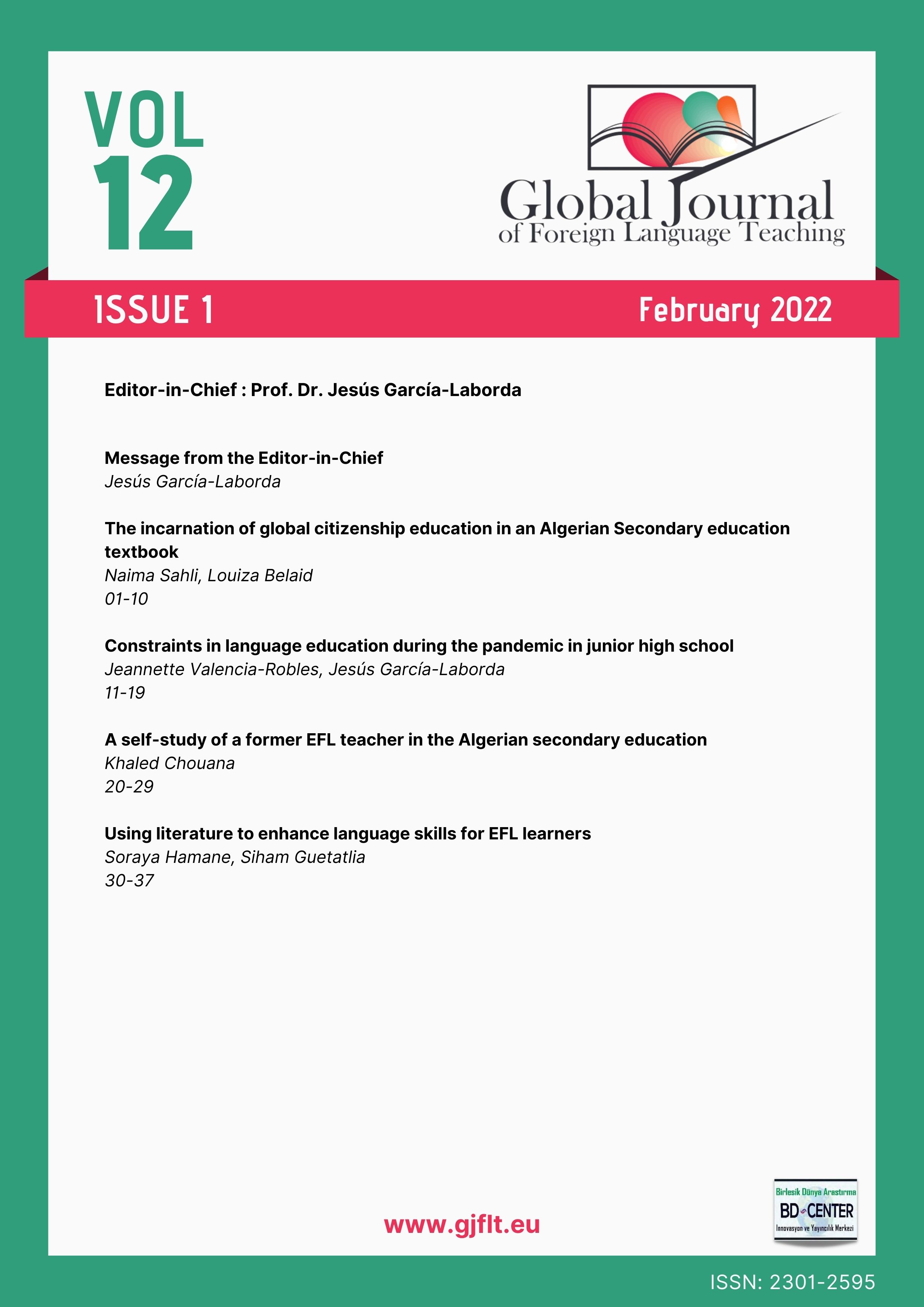The incarnation of global citizenship education in an Algerian secondary education textbook
Main Article Content
Abstract
This research examines the extent to which the Algerian secondary education textbook represents the ideals of global citizenship education. It targets the textbook coverage of GCE themes, and if the tasks’ objectives tackled global citizenship competency respectively. The present study is built on content analysis in which second-year English language textbooks are scanned. The study employs a combination of Sharma’s framework for value-creating global citizenship education and UNESCO’s (2015) framework. It also relies on the PISA framework for the evaluation of global competency. The findings indicate that this textbook sufficiently covers the themes of global citizenship education. However, it requires additions concerning updated trends to face climate change. The textbook activities focus on fostering the four dimensions of global citizenship education competency, with a particular emphasis on productive skills in which the pupils can have their approach to current global issues.
Keywords: Algerian Textbook; EFL; Global citizenship; Global competency; Secondary education.
Downloads
Article Details

This work is licensed under a Creative Commons Attribution 4.0 International License.
Authors who publish with this journal agree to the following terms:- Authors retain copyright and grant the journal right of first publication with the work simultaneously licensed under a Creative Commons Attribution License that allows others to share the work with an acknowledgement of the work's authorship and initial publication in this journal.
- Authors are able to enter into separate, additional contractual arrangements for the non-exclusive distribution of the journal's published version of the work (e.g., post it to an institutional repository or publish it in a book), with an acknowledgement of its initial publication in this journal.
- Authors are permitted and encouraged to post their work online (e.g., in institutional repositories or on their website) prior to and during the submission process, as it can lead to productive exchanges, as well as earlier and greater citation of published work (SeeThe Effect of Open Access).
